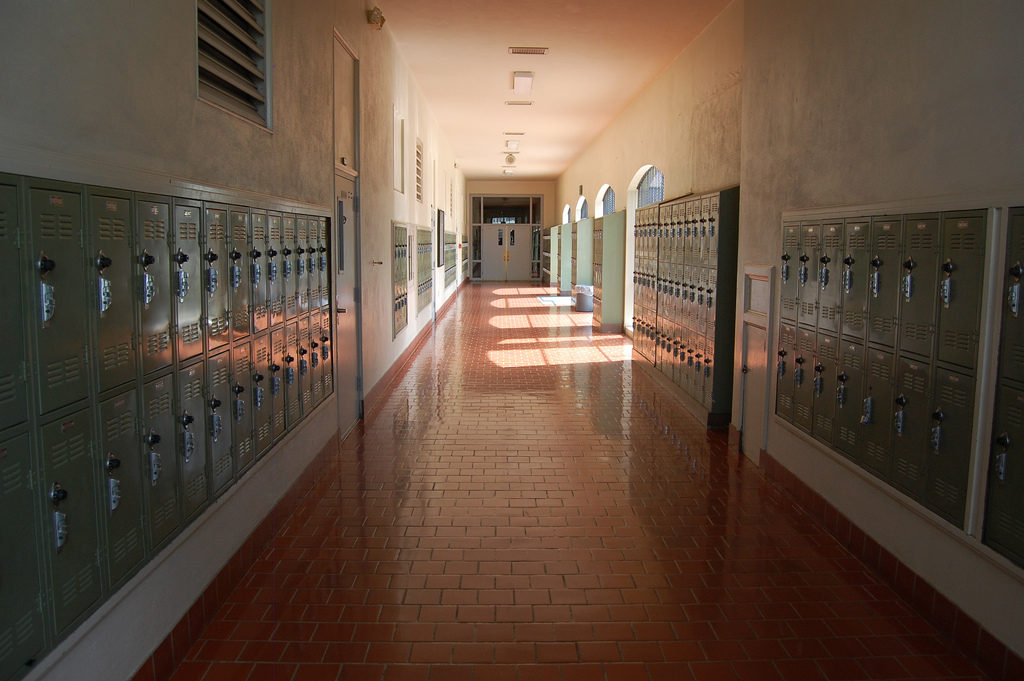Schools around Northern Virginia are seeing a massive surge in resignations from teachers, with the big question of why seeming to have a complicated answer.
Teachers in the Washington, D.C., area, including Northern Virginia, are resigning in unusually high numbers this year, according to The Washington Post. Resignations spiked 45% in Fairfax County Public Schools and 96% in Arlington, according to the WaPo data compiled by reporter Hannah Natanson.
The surge in teachers leaving the profession mirrors national trends. The Post article cites The Wall Street Journal as saying that 300,000 public school teachers and staffers quit their jobs between February 2020 and May 2022, representing a 3% decline in the K-12 educational workforce.
Educators say the reasons for resigning vary. But some cite the difficulty teachers faced readjusting students, many of whom had grown accustomed to pandemic-era remote education, to in-classroom learning this past year. Federal data released in early July showed that students in more than 80 percent of public schools are struggling with their behavior, social-emotional well-being and mental health — and that 50 percent of schools are reporting increased acts of disrespect by students toward educators.
James. A. Bacon, in his report, believes the reason why so many teachers are leaving is teacher burn-out, but that begs the question: why is there teacher burn-out?
Students in more than 80% of public schools are “struggling with their behavior, social-emotional well-being and mental health,” and 50% are reporting increased acts of disrespect toward educators, Natanson says. But there’s more to it, says Kimberly Adams, president of the Fairfax Education Association. As the WaPo summarizes her thinking:
Some teachers are also leaving because they are tired of the ongoing debates over how American schools should teach about race, racism, U.S. history, gender identity and sexual orientation. Parents across the country are pushing for greater involvement in their children’s education, including oversight of lesson plans and curriculums, and many regularly attend once-sleepy school board meetings to share their displeasure.
“I think it’s a perfect storm,” Adams said, referencing the combined effects of pandemic-induced exhaustion, a jump in student misbehavior and parental anger over the management of public education. “A lot of people are just saying, ‘I can’t do this anymore,’ and telling us they would rather have a job where they feel valued.”
She added: “Teachers are just feeling attacked by the public on every front. I don’t think we’ve heard enough from the people who support us.”
Bacon disagrees with the assessment that conservatives parents are to blame for the teacher burn outs that teachers are seeing, instead seeing that as a convent excuse, and ignoring the real issues the trend is showing.
“Natanson’s data undercuts Adams’ proposition. Literally nowhere in the country has the culture-war fire burned more intensely than in Loudoun County. If teacher objections to parental interference were a root cause of the mass resignations, it would show up here. But resignations are up only 6%. Of the seven Virginia and Maryland localities surveyed, only Prince George’s County in Maryland, where resignations declined 23%, fared better.”
“Natanson’s article points to teacher burnout resulting from the transition from COVID-driven remote learning back to in-school learning. Naturally, the teachers unions aren’t interested in highlighting this factor — they were the prime instigators of the shift to remote learning in the first place.”
Bacon also goes on to point out that the resignations are highest in high-poverty schools where learning loss and disciplinary issues are worst. Schools that serve low-income students and Black students have higher teacher vacancy rates – according to numbers from the Department of Education. That’s especially true in southside Virginia, where the vacancy rates are higher than any other part of the state.
“What happens to high-poverty schools that experience a high rate of resignations? Remaining teachers get saddled with more students, which leads to more burnout… and more resignations. Predictably, academic achievement suffers. There are indications that high-poverty schools are undergoing an unstoppable, chain-reaction meltdown.”
“If Natanson’s article accurately reflects the thinking of the Northern Virginia educational establishment, there is no sign that anyone comprehends what’s happening.”
